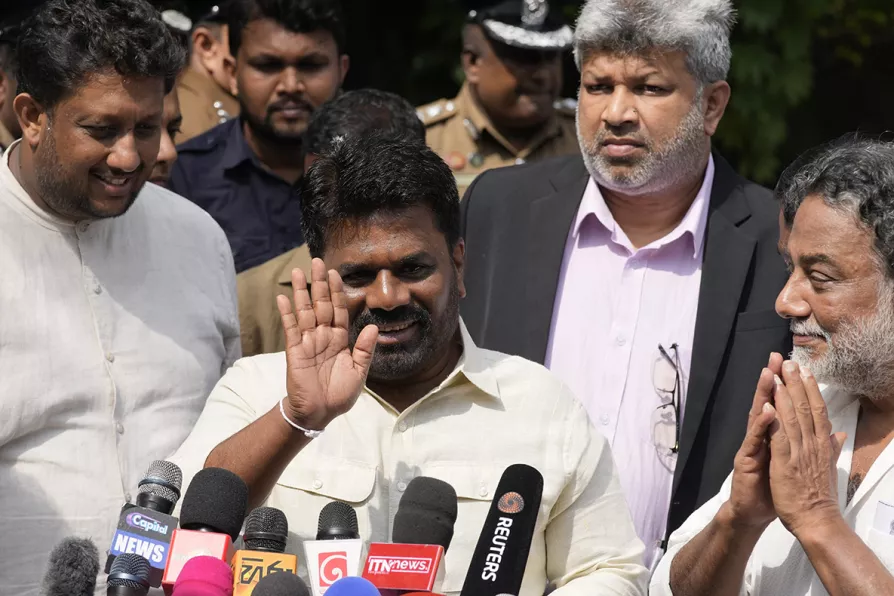Party of Sri Lanka's Marxist president wins big parliamentary majority

 Sri Lankan President Anura Kumara Dissanayake leaves after casting his vote during the parliamentary election in Colombo, Sri Lanka, November 14, 2024
Sri Lankan President Anura Kumara Dissanayake leaves after casting his vote during the parliamentary election in Colombo, Sri Lanka, November 14, 2024
THE party of Sri Lanka’s new Marxist President Anura Kumara Dissanayake has won a two-thirds majority in parliament, official election results showed today, providing a strong mandate for his programme of economic revival.
Mr Dissanayake’s National People’s Power Party won 159 of the 225 seats, according to the Elections Commission.
The United People’s Power Party of opposition leader Sajith Premadasa took second place with 40 seats.
Similar stories













